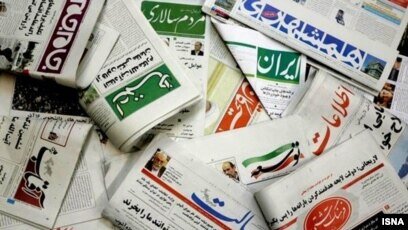A few points regarding ties between Iran and S. Arabia

While it was said that Saudi Arabia is preparing to normalize relations with Israel, the sudden change of the playing field from Tel Aviv-Riyadh to Tehran-Riyadh was surprising.
In an analysis Etela'at mentions several points about resuming Tehran-Riyadh diplomatic ties;
1- Saudi Arabia and Iran are competing over the volume of production and price of oil. Changing the policy of the two countries can strengthen their new ties.
2- Iran and Saudi Arabia have their own allies in the region and the world, the U.S. and Israel have always created conflicts in the countries allied to Tehran and Riyadh. Changing the strategies of Iran and Saudi Arabia coupled with maximum use of their resources and power can bring peace to these countries.
3- The United States and the West have always been mediators to resolve disputes around the world emphatically in West Asia, but for the first time, the East and China took the initiative.
Arman-e-Melli: U.S. will not open its fist
The agreement between Iran and Saudi Arabia is an important event, but it does not mean that this can solve all other problems, Arman-e-Melli says in a commentary.
The agreement is part of a puzzle, and other political and economic measures must be taken to complete the puzzle. If this does not happen, the agreement will definitely not be able to answer all the challenges.
Negotiations to revive the JCPOA, and the de-escalation process in Iran's relations with the West, especially the United States, can be the next steps that lead to both the revival of the JCPOA and Iran's accession to FATF.
The reality is that there is a gap between the U.S. policies and practices, and the Americans will certainly not open their fists so easily to be put in a new position in the process to (possibly) revitalize the JCPOA. If they want to control Iran's nuclear program, there is no way other than reviving the JCPOA.
The U.S. and Europeans’ reaction to the Tehran-Riyadh deal can be a positive sign of the regional policies of the United States since one of the problems that are always raised in the negotiations between Iran and the West is Iran's regional influence.
A part of Iran's regional influence is due to the competition between Iran and Saudi Arabia, and as much as Iran and Saudi Arabia can solve their problems at the regional level through dialogue, this will definitely have an impact on the negotiation process between Iran and the West. Iran's missile power can practically be removed from the negotiation table.
IRAN: West Asia on the path to reducing tensions
Western countries are reducing hostilities with Iran. Although Western governments try to hide it in their declared policies and pretend to continue the past policies, the news about the exchange of prisoners between Iran and the United States and the visit of Biden’s Special Presidential Envoy for Hostage Affairs Roger Carstens to Qatar are a sign of the failure of the past policies and the need for reform.
Talks between Iran and Bahrain and Iran and Egypt are also underway to resume relations.
Zionists consider the developments to be the result of the resumption of relations between Tehran and Riyadh. After Saudi Arabia did not allow the Israeli delegation to enter its soil, some Zionists reported a new blow from Abu Dhabi to the Tel Aviv cabinet after canceling Netanyahu's visit to the UAE and the possibility of canceling the contract to purchase defense systems from the Zionist regime.
Political observers believe that what can be seen in the new approach of some Arab countries with Iran will lead to stopping or slowing down the normalization of the relationship between these countries and the Zionist regime.
Etemad: Will Erdogan's two decades of power end?
Etemad writes: Two months before the elections, new polls show that President Recep Tayyip Erdogan is about 10% behind his main rival in the upcoming elections. Turkish citizens, who have been dealing with a large-scale economic crisis in recent years, doubt Erdogan's rule more than before due to the earthquake in southern Turkey.
The residents of the earthquake-affected areas mostly supported Erdogan in the last elections, but the disaster in these areas and the government's mismanagement in providing aid have fueled skepticism about the government’s competence.
A poll published by Aksoy Research company showed that Kemal K?l?çdaro?lu is 55.6% ahead in comparison to 44.4% for Erdogan.
It seems that after 20 years of undisputed rule by Recep Tayyip Erdo?an, the upcoming elections could jeopardize his position.
Erdogan's opponents have promised to restore the parliamentary system once again if they win the elections. Erdogan, who has been the president since 2019, is determined to run again in the upcoming elections.
Leave a Comment